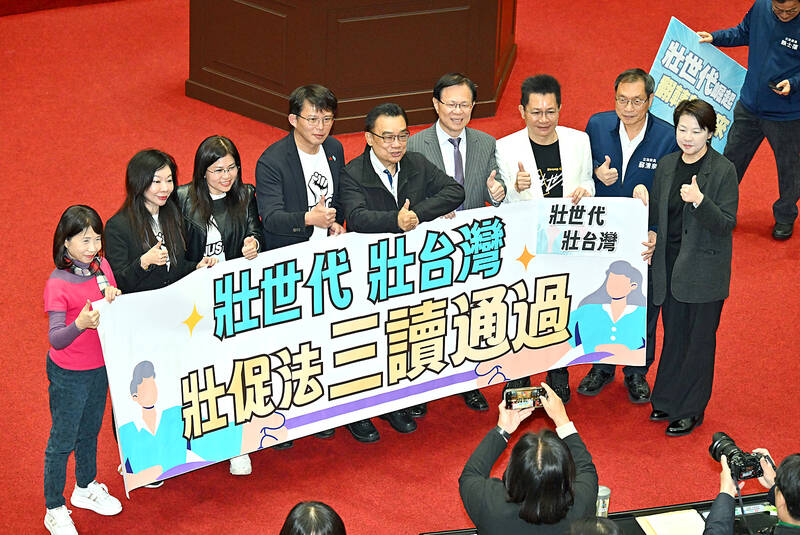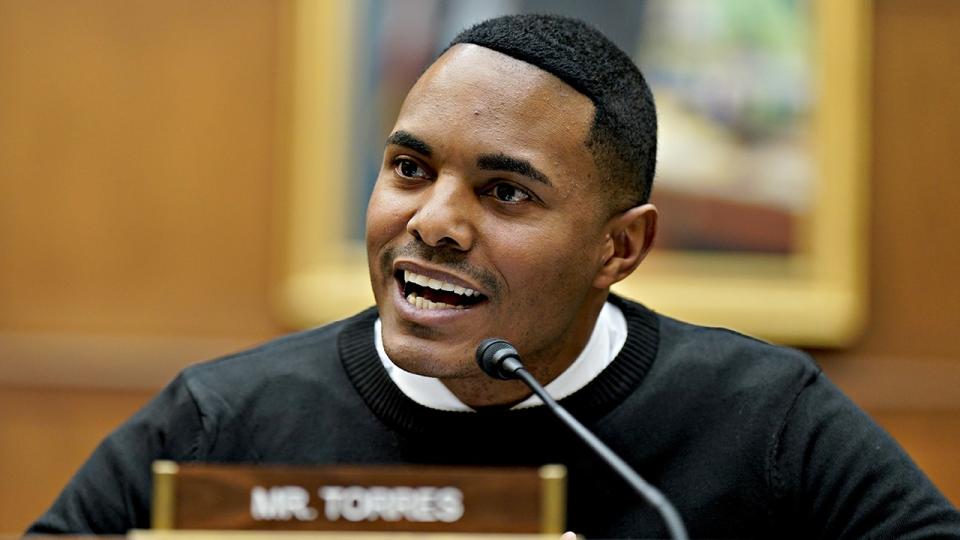CORRUPTION:
The group said that while more than 80 lawmakers elected since 2020 disclosed outside work, many opposition legislators failed to do so
-
By Lee Wen-hsin
and Jake Chung /
Staff reporter, with staff writer
Citizen Congress Watch yesterday issued a statement calling on legislators across the political spectrum to focus on introducing legislation that would bar lawmakers from concurrently holding other positions.
The Legislative Yuan should endeavor to pass amendments to the Legislators’ Conduct Act (立法委員行為法) and the Act on Recusal of Public Servants Due to Conflicts of Interest (公職人員利益衝突迴避法) in the next legislative session to ensure that they are in a position to provide governmental oversight, the group said.
Article 11 of the Legislators’ Conduct Act only prohibits legislators from holding any position in government-owned enterprises, but does not bar them from holding positions in for-profit or non-profit organizations, it said.

Photo: Tien Yu-hua, Taipei Times
Legislators’ pay grade is on par with that of ministers at NT$212,640 per month, and they wield far greater influence over the government than the average civil servant, it said.
However, lawmakers have constantly been accused of lobbying for specific corporations, or attempting to intervene in the internal affairs of government agencies and state-owned corporations, it added.
Legislators are the people’s representatives and should not be enamored of power, wealth or fame, it said.
The group called on legislators to disclose information on their positions in non-profit or for-profit organizations, the funds they use to travel abroad on public business and how they use public funds earmarked for hiring assistants.
The group said that Chinese Nationalist Party (KMT) and Taiwan People’s Party (TPP) legislators have been reticent to disclose such information, while more than 80 legislators elected from 2020 to last year were willing to do so.
The group alleged that TPP Legislator Wu Chun-cheng (吳春城) failed to recuse himself over a conflict of interest, with Wu continuing to serve as the head of the Strong Generation Association, which he founded, up until the end of last year, while pushing hard to pass the Act Promoting Development for Strong Generation Policies and Industries (壯世代政策與產業發展促進法).
The association participated in two bids issued by the Chiayi City Government and trademarked the association’s name, the group said.
In addition, the group alleged that Wu abused his position as a legislator by proposing to freeze budgets for the National Palace Museum and the National Development Council, because both organizations failed to use the term “strong generation.”
According to Wu’s association, the term “strong generation” refers to the generation born after World War II, aged 55 or older. The association hopes to replace terms such as “elderly” or “silver-haired,” which it said carry negative connotations.
#Legislators #jobs #watchdog #group









Leave a Reply